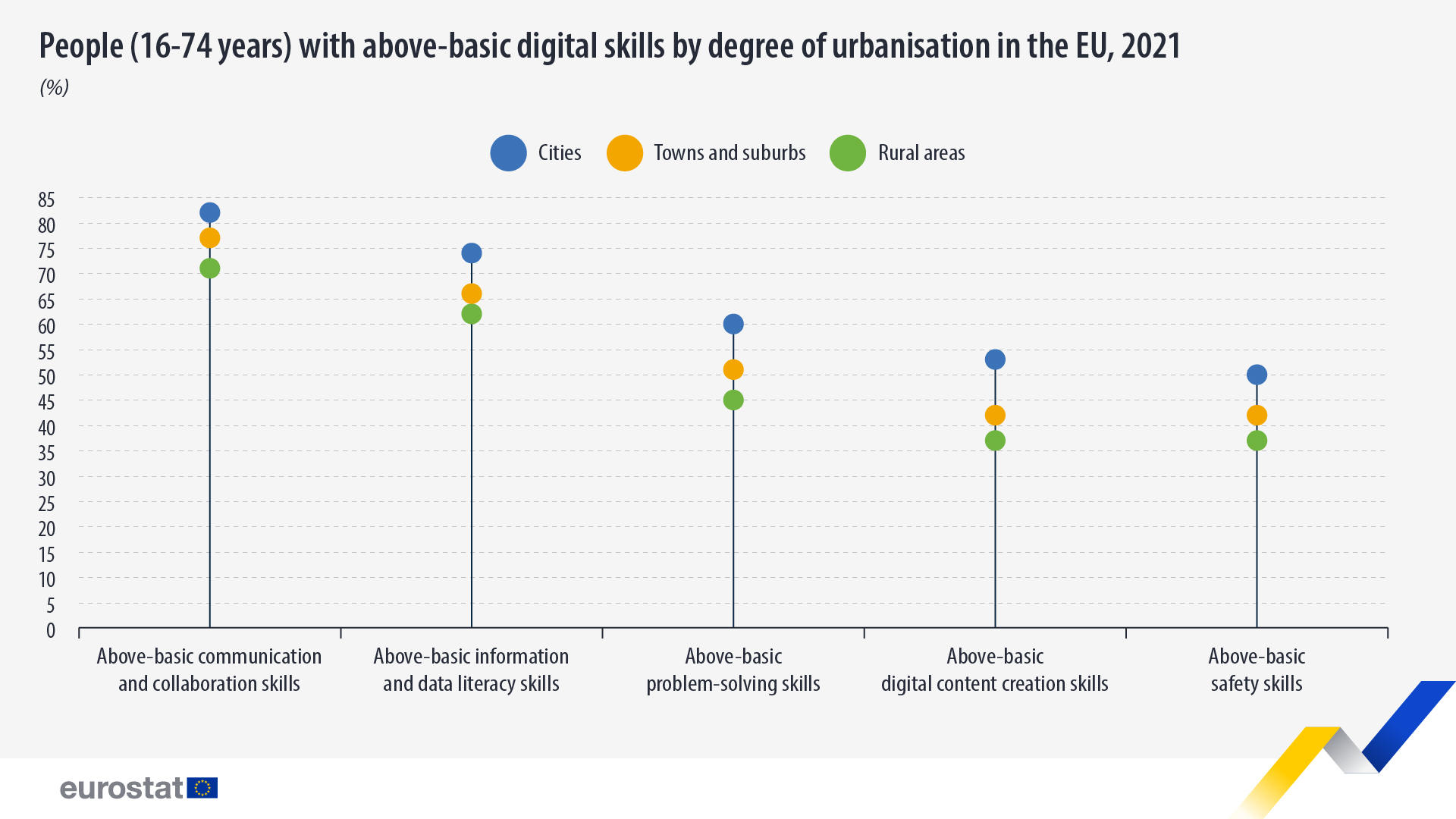EU digital skills divide: cities outpace rural areas

In 2021, just over one quarter (26%) of the EU population aged 16–74 years reported above-basic overall digital skills. A higher share was recorded for people living in cities (33%), while a lower proportion of people living in towns and suburbs (24%) and in rural areas (20%) had above-basic overall digital skills.
Across 26 of the 27 EU countries, the highest share of people with above-basic overall digital skills was registered for those living in cities. Malta was the only country that registered a higher share of above-basic digital skills in towns and suburbs instead of cities.
Source dataset: isoc_sk_dskl_i21
The overall digital skills indicator is a composite indicator based on five types of skills: information and data literacy skills, communication and collaboration skills, digital content creation skills, safety skills and problem-solving skills.
In 2021, more than three-quarters (77%) of the EU population aged 16–74 years had above-basic digital communication and collaboration skills. A higher share was recorded for people living in cities (82%), while those living in rural areas had a lower share (71%). This pattern – a higher share of people living in cities having above-basic digital skills – was repeated for all five areas covered by the composite indicator, with the largest digital divide recorded for content creation skills (where there was a 16-percentage-point gap in the share of people with above-basic skills between those living in cities and those living in rural areas).
Source dataset: isoc_sk_dskl_i21
Once again, across the EU members, it was generally the case that a higher proportion of people living in cities (compared with those living in towns and suburbs or in rural areas) had above-basic skills, although there were some exceptions:
- Regarding individuals with above-basic information and data literacy skills, the highest share in Belgium was recorded for people living in towns and suburbs (71% compared with 70% for rural areas and 68% for cities).
- Regarding above-basic communication and collaboration skills, the highest share in Cyprus was recorded for people living in towns and suburbs (91% compared with 88% for cities and 81% for rural areas). Furthermore, the highest share in the Netherlands was recorded for people living in rural areas (94% compared with 93% for towns and suburbs and 92% for cities).
For more information
- The Rural Europe and Urban Europe publications
- Thematic section on regions and cities
- Thematic section on digital economy and society
- Database on digital economy and society
- Metadata on digital skills
Methodological notes:
- Malta: data on rural areas with low reliability.
- Overall digital skills refer to five areas: information and data literacy skills (for example, searching online); communication and collaboration skills (for example, communication via e-mail); digital content creation skills (for example, writing programming code); safety skills (for example, protecting personal data); and problem-solving skills (for example, installing software).
If you have any queries, please visit our contact us page.

